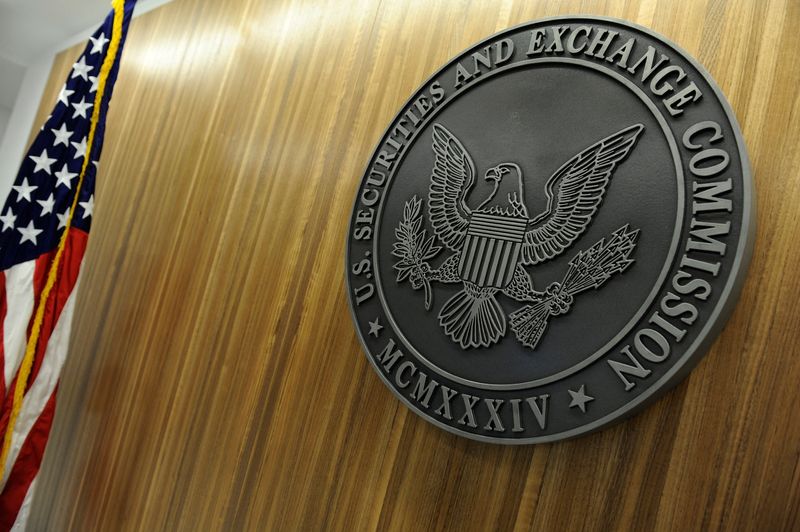U.S. federal judge in New York criticizes SEC ‘gag orders’ policy
2022.10.28 16:35
[ad_1]

© Reuters. FILE PHOTO: The seal of the U.S. Securities and Exchange Commission hangs on the wall at SEC headquarters in Washington, June 24, 2011. REUTERS/Jonathan Ernst/File Photo
By Jody Godoy
(Reuters) – A U.S. federal judge in New York on Friday called it “troubling” that a Securities and Exchange Commission (SEC) policy makes people who settle charges of fraud, insider trading or other allegations agree not to deny them later.
Under the decades-old policy, defendants who settle without admitting to allegations must agree not to publicly deny them. The practice, a standard in SEC settlements, has been upheld in courts despite drawing ire from critics including former defendants, the libertarian Cato Institute and other groups that favor limiting government power.
U.S. District Judge Ronnie Abrams took said in a ruling that requiring “gag orders” clashes with the constitutional protection of free speech.
“What is the SEC so afraid of? Any criticism, apparently—or, rather, anything that may even ‘create the impression’ of criticism—of that governmental agency,” Abrams wrote.
The judge nevertheless approved a settlement with a no-deny clause, following a ruling last year by the 2nd U.S. Circuit Court of Appeals which said the practice was not unconstitutional.
Critics say the rule, dating back to the 1970s, violates defendants’ rights to free speech. They have sought unsuccessfully to invalidate it in court in recent years.
The SEC has defended the policy, saying that defendants are free to challenge allegations in court instead of settle.
While two judges on the conservative 5th U.S. Circuit Court of Appeals have criticized the policy, no court has ruled against the SEC.
The U.S. Supreme Court in June rejected a petition on the issue that had received support from Elon Musk.
That case was brought by former Xerox (NASDAQ:) executive Barry Romeril. The 2nd Circuit ruled last year that Romeril freely waived his right to deny accounting fraud allegations when he settled with the SEC.
One of the attorneys who represented Romeril in the appeal was Abrams’ father, she disclosed in her opinion.
“Rare though it may be, occasionally we must acknowledge when our parents happen to get it right,” Abrams wrote.
The case is SEC v, Moraes, U.S. District Court, Southern District of New York, No. 22-cv-08343.
[ad_2]
Source link








